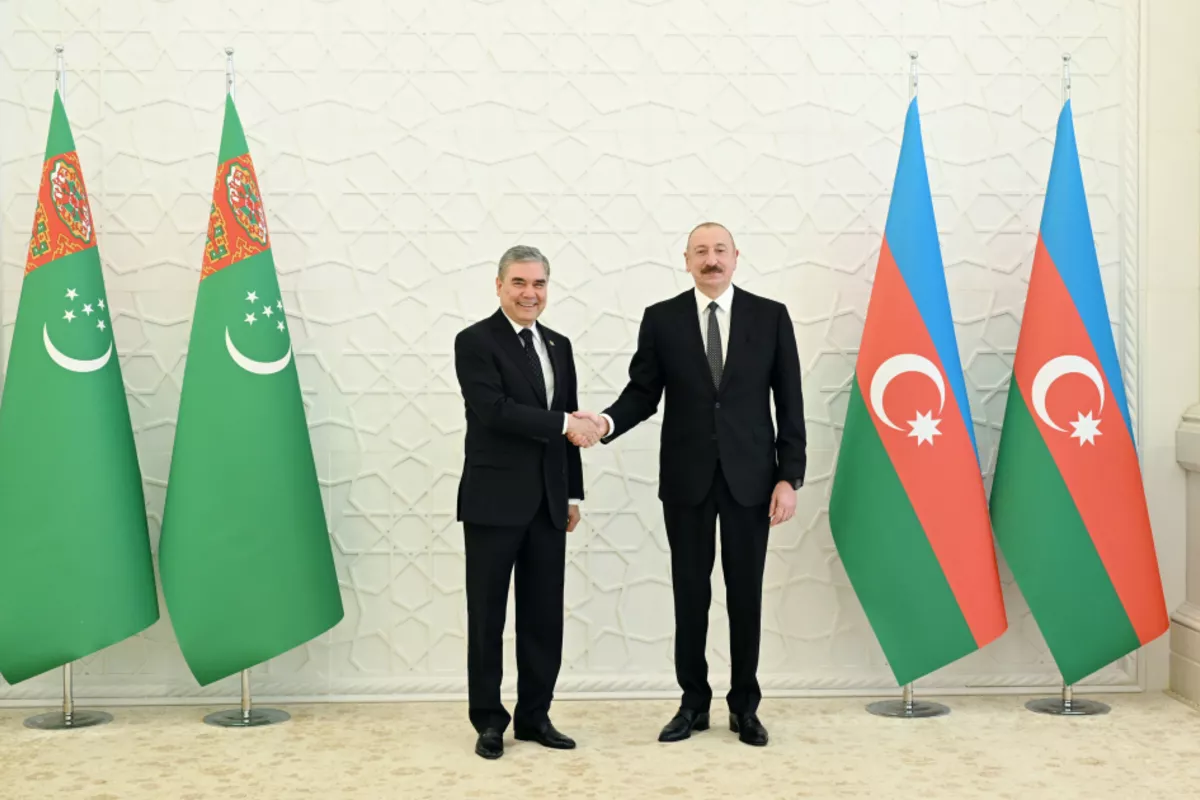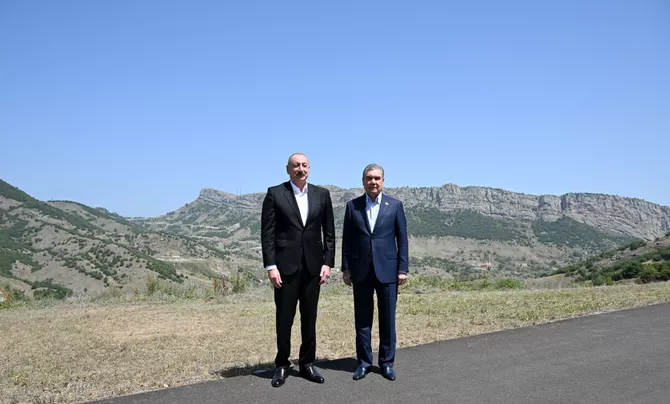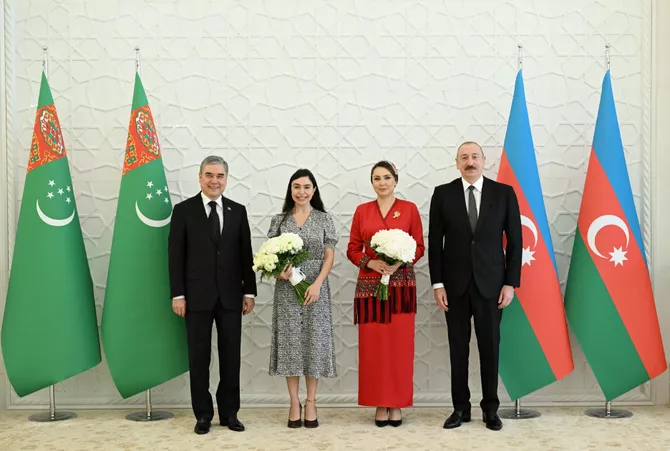
Photo: AZERTAC
The visit of Gurbanguly Berdimuhamedov, Chairman of the Halk Maslahaty of Turkmenistan, to Azerbaijan can be regarded as a historic event. The long-standing leader of Turkmenistan visited Baku for the first time, marking a significant moment in bilateral relations. What makes this visit particularly noteworthy is the fact that Turkmenistan was not represented at a high level during the recent Economic Cooperation Organization (ECO) summit held in Khankendi. Many analysts viewed this absence as a signal of Ashgabat’s desire to distance itself from any processes related to the liberated territories and, more broadly, from regional integration initiatives.
However, not long afterward, Gurbanguly Berdimuhamedov himself arrived in Baku-a rare occurrence, given how infrequently he appears at international events. The visit began on July 16 and continued with a trip to Azerbaijan’s liberated territories.

Photo: AZERTAC
In recent years, bilateral ties between Azerbaijan and Turkmenistan have grown noticeably stronger. These relations are based not only on shared Turkic heritage, cultural affinity, and historical memory, but also on converging strategic interests in the fields of energy, transport, trade, and regional security. The visit of Turkmenistan’s National Leader on July 16, 2025, served as further confirmation of the growing importance of the Azerbaijan-Turkmenistan partnership.
The two countries are steadily building relations grounded in principles of good neighborliness, mutual respect, and non-interference in each other’s internal affairs. Political dialogue is maintained at the highest level. The current visit underscored both sides’ commitment to deepening interstate ties and elevating them to a qualitatively new level. The two countries reaffirmed their dedication to strategic dialogue and the expansion of cooperation in key areas, including energy, logistics, humanitarian relations, and international partnerships.
For a long time, the Caspian region was viewed as a zone of potential rivalry among energy-rich littoral states. However, in recent years, Azerbaijan and Turkmenistan have demonstrated a growing inclination toward cooperation-especially in light of global changes in the energy market. A powerful symbol of this rapprochement was the joint development agreement on the "Dostlug" oil and gas field (formerly the disputed “Kyapaz/Serdar” block) in the Caspian Sea. On January 23, 2021, during a videoconference between Presidents Ilham Aliyev and Gurbanguly Berdimuhamedov, the two countries signed an intergovernmental Memorandum of Understanding on the joint exploration, development, and exploitation of hydrocarbon resources in the Dostlug field.

Photo: AZERTAC
This agreement marked a crucial turning point-from confrontation to mutually beneficial partnership.
Looking ahead, discussions are ongoing about the construction of the Trans-Caspian gas pipeline, which would connect Turkmenistan’s vast gas reserves with European markets via Azerbaijan and the Southern Gas Corridor. Although the project faces geopolitical and environmental challenges, its implementation could radically reshape the energy map of Eurasia.
Economic relations between Azerbaijan and Turkmenistan continue to grow steadily. In 2024, bilateral trade turnover reached $383.7 million, and in the first months of 2025 it already exceeded $118 million. Turkmenistan remains a key supplier of energy products, chemicals, and textiles, while Azerbaijan exports engineering products, construction materials, and foodstuffs to Turkmenistan.
Logistical cooperation is also advancing. The maritime route between Turkmenbashi and Baku enhances the transit capabilities of both countries. The Lapis Lazuli Corridor, linking Turkmenistan with Azerbaijan and onward to Europe, further strengthens Azerbaijan’s role as a key transit hub in Eurasia. The increase in container transportation between the two countries, amid global demand for secure and efficient routes, highlights their growing interdependence.
On the international stage, Azerbaijan and Turkmenistan consistently support one another. Both advocate for a multipolar world order, balanced regional development, and the inviolability of national borders. Their shared participation in organizations such as the United Nations, the Organization of Turkic States, the Non-Aligned Movement, and the ECO provides a platform for coordinating positions. Caspian cooperation holds special importance, with issues such as security, navigation, environmental protection, and the legal status of the sea acquiring strategic significance.
Gurbanguly Berdimuhamedov’s visit to Baku logically continues the progressive and comprehensive strengthening of bilateral ties. In light of this visit, it is clear that Azerbaijan-Turkmenistan relations are experiencing a phase of strategic elevation. Both countries are demonstrating a mature foreign policy approach, moving beyond past frictions and steadily building a mutually beneficial partnership. Berdimuhamedov’s visit has become a clear marker of this positive trajectory.
Amid a changing global order and the urgent need for new, stable alliances, the Baku-Ashgabat tandem may serve as a model for regional cooperation-one built on pragmatism, mutual respect, and a shared vision for the future.
By Tural Heybatov
Share on social media